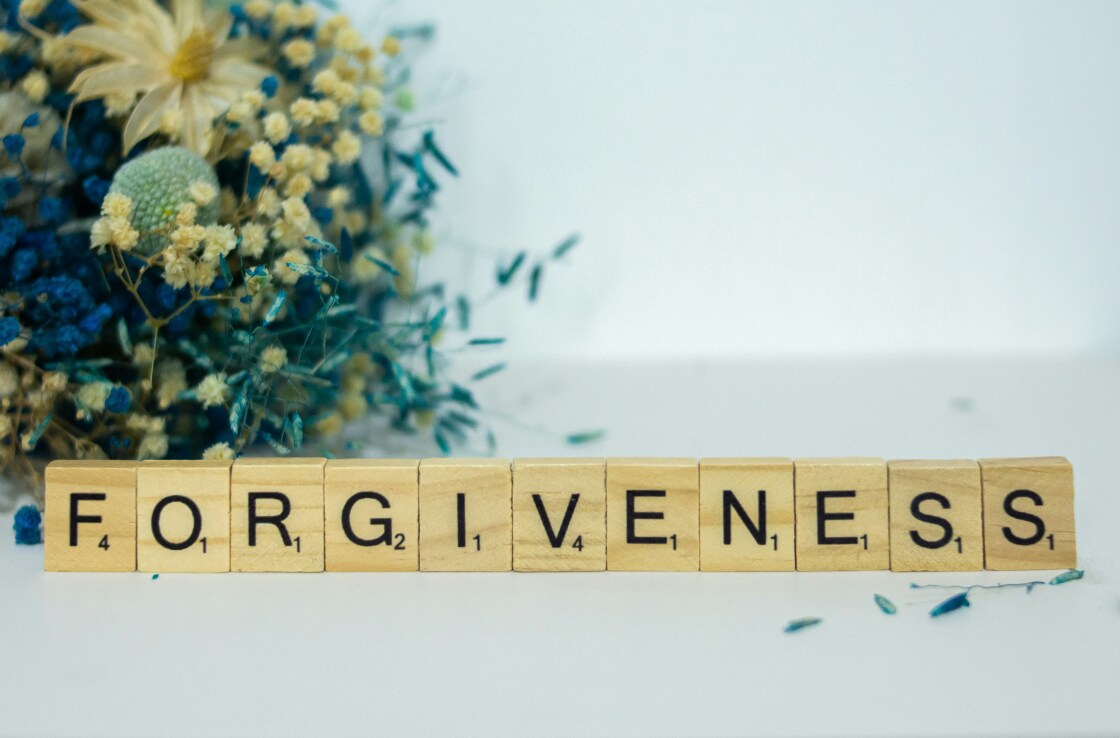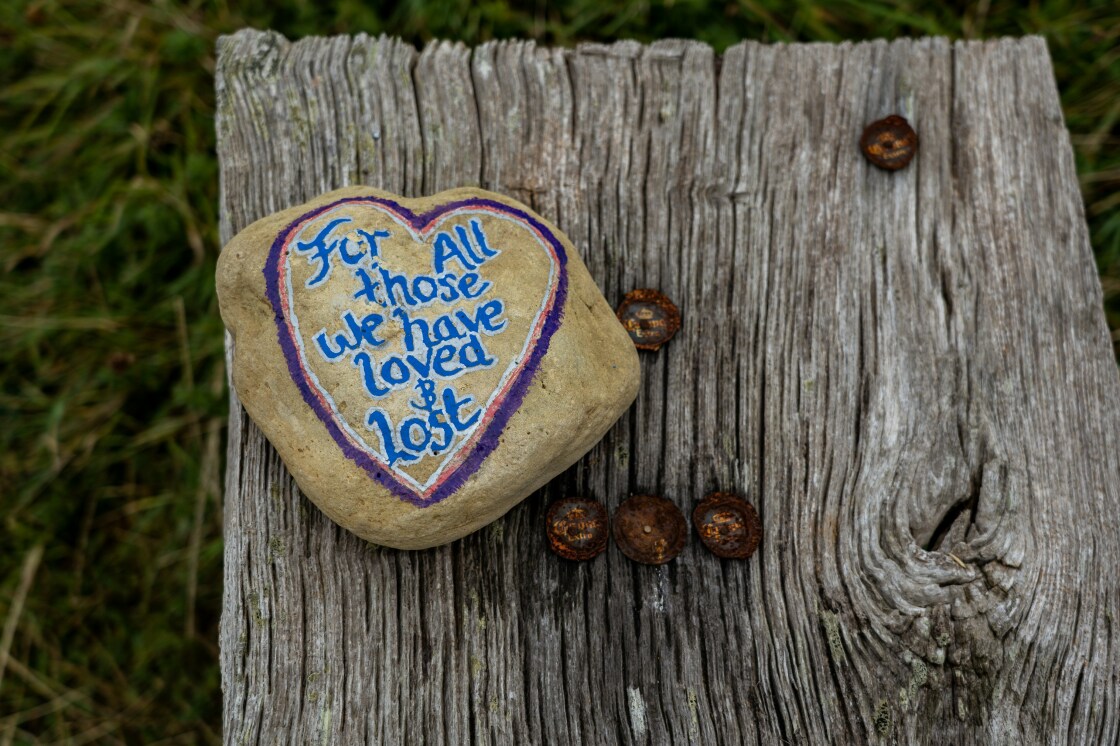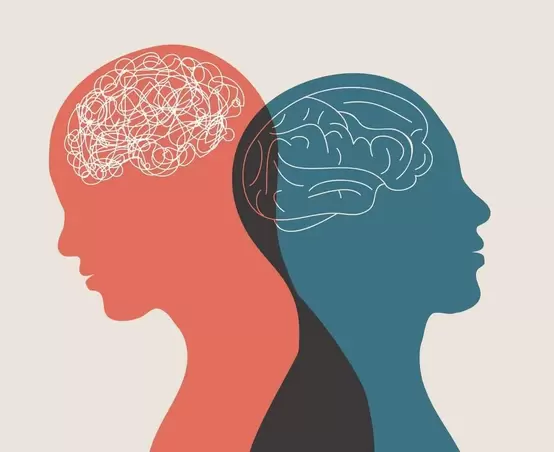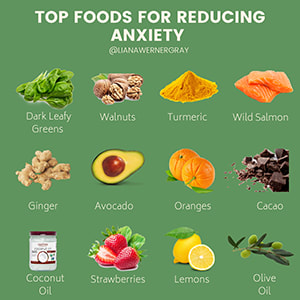|
A growing trend on social media and online in general is therapy speak. I have seen many videos online in which therapists and non-therapists discuss terms often used during therapy. The prevalence of therapy speak has grown to the point that some terminology has become incorporated into online slang.
One such term is "gaslighting." Gaslighting is a form of emotional abuse that targets people's reality and self-worth. This term has become very prevalent online, especially when discussing romantic relationships. As someone who uses social media daily, I became curious as to what gaslighting is from a professional mental health perspective. According to an article by therapy.com, gaslighting can occur in various relationships: romantic, friendship, familial, workplace, and societally.
Knowing what gaslighting can look like can help us respond to these situations. If you are experiencing gaslighting, you should trust your instincts by validating your emotions and acknowledging them. Document your interactions so you can reference them and ground yourself in your reality. Remember to set your boundaries, even if this includes distancing yourself or cutting ties. And, as always, seek professional help for strategies and support. Blog by Norma Source: “Gaslighting Examples: How to Recognize It and Respond.” Therapist.Com, 12 June 2024, therapist.com/behaviors/gaslighting/gaslighting-examples/?utm_campaign=tcom_articles&utm_medium=email&_hsmi=315846184&utm_content=315846336&utm_source=hs_email.
0 Comments
As a graduate student on summer vacation, I now find myself with more free time in the evenings than before. During my fall and spring semesters, my evenings consisted of class, homework, group meetings, and catching up on sleep. Now, I have more time to explore my hobbies and interests. This newfound time led me to recall the last time I had free time, which was during quarantine.
Like many others during quarantine, I tried to busy myself with several hobbies. I took up reading the classics, watching movies, embroidering, and painting. While partaking in these activities, I found myself in what could be described as a state of "flow." Flow is a concept by John Dattilo, a recreation, park, and tourism management professor at Penn State. According to him, people enter a state of flow when they engage in meaningful activities. Meaningful activities, either mental or physical, force us to concentrate. When we engage in meaningful activities and enter a state of flow, we can reduce loneliness and increase positive feelings. Loneliness can decrease our quality of life and affect our health. Hobbies can be meaningful activities. Depending on the hobby, we are forced to concentrate as we physically or mentally engage. Furthermore, when we are engrossed in our hobbies, our mind no longer has time to think about loneliness. We often feel better and happier during and after our hobbies. My goal for this summer is to re-engage in meaningful activities and find my state of "flow" once more. I have already started re-reading one of my favorite books and plan to pursue more artistic hobbies, such as painting and sculpting. We should all try to take up a hobby. Hobbies do not need to be expensive or incredibly time-consuming; they can be as simple as reading a book or going for a daily walk. Try to take up a hobby and experience a state of flow. Your body and mind will thank you! Blog by Norma Source:https://nicenews.com/culture/meaningful-activities-reduce-loneliness/ As we age, our thoughts and concerns can turn to topics such as our health, our loved ones' health, friends, and family. Older age can bring newfound time to try new hobbies, hang out with loved ones, and rediscover oneself. Older age can bring a myriad of new things into our lives. With so much new and so many changes, it can be easy to neglect one's mental health.
In this week's blog post, I want to address anxiety and how it can affect older adults. Anxiety affects the part of the brain responsible for fear and emotional regulation. Anxiety disorders are the most common mental health condition in older adults, with about 14 - 17 percent of the 65+ population being affected. While many older people have anxiety, typically only about a third of them receive any care, which can lead to a misrepresentation of the actual amount of older adults with anxiety. Older adults with the following can be at increased risk of anxiety:
The following are some of the symptoms of anxiety in older adults:
In older adults, anxiety can lead to the development of phobias and worsened panic attacks. Anxiety disorders in older adults can manifest physically as increased loneliness. Due to the similarity in symptoms to other conditions, symptoms of anxiety can often be blamed on physical conditions. We must understand how anxiety manifests itself in older adults to get the proper care. If you or someone you know is possibly dealing with anxiety, contact our office. Blog by Norma Source: https://www.cedars-sinai.org/blog/anxiety-in-the-golden-years.html An estimated 53 million Americans are caregivers for family members or friends. These Americans have the difficult task of providing assistance for loved ones, including during difficult times and moments. Finding a way to balance caring for a loved one and caring for oneself can be difficult. Caregivers often have their loved ones' well-being at the forefront of their minds, meaning their well-being is often placed on the back burner.
How can caregivers care for themselves when they are often stressed, tired, and can be faced with resentment?
Being a caregiver is a challenging but rewarding job. Ensuring that our loved ones are getting the care they deserve is essential. However, it can be difficult to prioritize one's care when they are caring for another. It is unrealistic to tell caregivers to take time off to do activities such as yoga, a trip, or get a facial when so much of their energy (mentally, physically, and emotionally) is put towards their loved one. Instead, prioritizing those small everyday basics can go a long way to help caregivers. Blog by Norma https://www.nytimes.com/2024/05/16/well/mind/caregiver-health.html May is Mental Health Awareness Month, so we've compiled a list of tips to keep in mind this month:
Mental illness affects more than 1 in 5 adults in the United States. This means you are not alone in your mental health journey. We hope these tips can serve as a helpful reminder of what you can do to prioritize your mental health. If you or someone you know is struggling with their mental health, feel free to contact our office. Anxiety can be a pervasive emotion inundating our thoughts and feelings. When anxiety becomes too much, it can lead to cognitive distortion, providing us with irrational thought patterns. These negative and illogical thought patterns can get us anxious about situations and scenarios before they happen.
There are several types of cognitive distortions:
When we experience cognitive distortion, what should we do? One technique is reframing. Reframing is used in Cognitive Behavioral Therapy (CBT) as a technique to stop cognitive distortions. It is the habit of consciously changing how you feel during detrimental moments of cognitive distortions. Reframing allows us to grow and expand our mindset, creating a shift from negative to positive. How does cognitive reframing work?
Cognitive reframing can improve your mindset by focusing on positive thoughts and can lead to a long-term shift in your overall mood. If you are interested in reframing your cognitive distortion, reach out to one of our therapists! Higgins, L. (2023, December 27). Cognitive reframing: Overcoming cognitive distortions with reframing. The Couch: A Therapy & Mental Wellness Blog. https://blog.zencare.co/cognitive-reframing-distortions/ Blog by Norma
Growing up with sisters was a whirlwind. My sisters and I always fought, argued, or found ways to annoy each other. I often thought that we would never get along because our interests and personalities were so different. Now, as an adult, my relationship with my sisters is one of the most meaningful and significant relationships I have. I started to think about my sisters and our relationships after listening to NPR. NPR's Morning Edition discussed the importance of the quality of sibling relationships and loneliness and depression. Having strong positive relationships with siblings can lead to less feelings of loneliness and depression. Even more interesting, good sibling relationships can determine good emotional health in middle age. A study by Professor Megan Gilligan of the University of Missouri found that a shift occurs at age 23, when our relationships with our siblings become more emotionally stable. Having a positive relationship with our siblings doesn't have to mean they are our best friends or that we simply forget about anything that happened during childhood; instead, it means acknowledging the past and moving forward. While I can't say for certain if 23 was the shifting point for my sisters and me, I am very happy with the strong and positive relationships we do have. As adults, my sisters have become some of my biggest supporters, and I am theirs. They are the only people who share the same lived experiences I have. We now look at our childhood and reminisce about our silly arguments. What was once fighting over the last piece of candy, taking each other's clothes, and "borrowing" makeup are now memories of shared laughter. Check out the link below to listen to/read about the link between the quality of sibling relationships and loneliness and depression. https://www.npr.org/2024/04/08/1243347224/study-finds-link-between-quality-of-sibling-relationships-and-loneliness-depress Blog by Norma
The power of forgiveness. We have all heard this phrase, yet is there true power in forgiving others? When we are in a state of unforgiveness, our bodies react in many ways. This includes increased blood pressure, symptoms of depression, and symptoms of anxiety. Our body and mind can be preoccupied with negative thoughts and resentment. According to a study by Tyler Vanderweele, which was discussed in an article posted by Harvard Health Publishing, forgiveness can impact mental health. Vanderweele conducted a study of 4,600 participants split into 2 groups. The first group received self-guided forgiveness workbooks with written exercises to teach techniques to aid in forgiveness. After two weeks, participants who received the self-guided forgiveness workbooks reported decreased symptoms of depression and anxiety. Forgiveness can be a powerful tool for bettering our mental health; however, it is essential to note that forgiveness doesn't condone harm suffered. The power of forgiveness is that it accepts that what happened is over. Forgiving others for the damage they have caused doesn't always include reconciliation with the wrongdoer. A few strategies can be implemented to take advantage of the power of forgiveness.
Forgiveness is powerful; let's allow ourselves to forgive. Source: Salamon, M. (2024, March 1). Not just good for the soul. Harvard Health. https://www.health.harvard.edu/mind-and-mood/not-just-good-for-the-soul Blog by Norma
The new year has arrived, and with it, the opportunity to challenge ourselves to improve through our New Year's resolutions. Setting resolutions isn't about creating drastic changes; instead, it is about making positive small changes that can impact our overall behavior. Making our resolutions realistic can help us achieve them and incorporate healthy behavior into our daily routines. Meeting our resolutions takes time and effort. While we have good intentions and the motivation to set goals, following through is harder said than done. How can we set ourselves up for success so that meeting our resolutions doesn't add to the challenge? 1. Start Small: The notion of a new year and its endless opportunities can have us thinking BIG. While there is nothing wrong with setting significant goals, focusing on smaller actions towards larger goals can make our resolutions more attainable. Change requires time, and by starting small, we create steps that lead us to our larger goal. 2. Focus on One Goal at a Time: Similar to how large goals can overwhelm us, so can many goals. It can be overwhelming to change several behaviors; instead, gear your resolution toward one behavior at a time. 3. Share your Resolutions: Sharing our goals for the new year can help us find support in friends, family, coworkers, and strangers. By sharing our resolutions, we make achieving said resolutions less intimidating. In addition, you can find a support group or join a workout group/exercise class, etc, to help keep you accountable and enhance your experience towards meeting your goals. 4. Be King to Yourself: We are all human, and our journeys are imperfect. While we all wish meeting our resolutions was as simple as coming up with our goals, the journey towards achieving them is often full of ups and downs. Don't let the missteps or setbacks stop you from achieving your resolutions. Focus on recovering from mistakes instead of dwelling on them. 5. Ask for Help: If your resolution or meeting your goals is adding unnecessary stress to your life, reach out to a professional. They can offer advice and strategies to make goals attainable and help change unhealthy behaviors. Your resolutions shouldn't add extra stress to your life. Setting realistic resolutions allows you to set yourself and your new year up for success. Blog by Norma
Stress is a part of our lives, and while we can not avoid it, we can handle it healthily. There are different kinds of stress. Acute stress is a response to a short-term stressor; it passes quickly and responds to coping techniques. Chronic stress can damage both mental and physical health; it occurs when stressors don't let up, and its roots can vary. WAYS TO DEAL WITH STRESS:
As always, these are just some tips to help handle stress. If you find yourself struggling with chronic stress or find that these techniques are not helpful, reach out to a mental health provider. Blog post by Norma
Our latest blog posts have revolved around the holiday season, and we want to continue this theme by addressing the topic of holiday burnout. Holiday burnout can stem from many things, such as accumulated stress from holiday tasks and our everyday lives. One of the additional stressors can be holiday events. The holiday season is not without holiday parties and events. For many, the abundance of events can be increasingly stressful, especially when you do not want to hurt others' feelings by declining an invitation. If you struggle to turn down invitations for events you do not wish to attend, you are not alone! According to an article by the APA, many people overestimate the consequences of declining an invitation. Research by Julian Givi, Ph.D., Assistant Professor at West Virginia University, found that the negative consequences of rejecting an invitation to an event are less severe than we think. This study looked at 2,000 participants and five different experiments, of which one included participants either rejecting an invitation or having their invitation rejected. Those tasked with rejecting an invitation expressed that they believed their friend, whose invitation was rejected, would view them negatively and be upset. The results showed that we tend to overestimate how others feel in this scenario as we believe people will focus on rejection. However, this is not always the case. While accommodating others' feelings and expressing sympathy is essential, we should not let this come before our feelings. If holiday events add extra stress to your life, don't be afraid to turn down a few. Take the time to destress at home and recharge your social battery. Being honest about what you can and can't handle during the holidays can help mitigate holiday burnout. Source: American Psychological Association. (2023, December 11). Just say no to that invitation. American Psychological Association. https://www.apa.org/news/press/releases/2023/12/say-no-invitation Blog by Norma
Grief is a complex aspect of life that affects us all at some point. There is no one way to cope with grief; however, understanding grief can help us make the journey through it a little easier. WHAT IS GRIEF? Grief is an emotional reaction to loss, usually accompanied by intense emotions such as sadness, shock, and loneliness. It can present itself with physical or somatic symptoms of fatigue, headaches, stomachaches, weight changes, confusion, and insomnia. It can be the result of many emotions and has many causes: breakup or divorce, medical diagnosis, change in life stage, loss of pet or friendship. Understanding the various stages and types of grief can help us better navigate the non-linear and highly unique experience of grief. TYPES OF GRIEF
STAGES OF GRIEF
Coping with grief is complicated. Using pre-existing coping strategies and relying on one's natural resilience are great ways to cope. If experiencing grief, ask yourself a few questions: What resources do I have to help me manage? What negative experiences have I had, and how did I cope with them? What would be helpful to me in reducing the intensity of my grief? Healing after loss is complicated and can sound impossible if you are in the midst of the grieving process. Healing includes caring for oneself and getting back to a regular routine. Helping a loved one through grief involves picking up on their non-verbal cues, as communicating their needs may be difficult. Remember to give those grieving space if they need it and time to reflect. If you or someone you know is experiencing grief, reach out to a mental health provider and try some of the tips in this blog to ease the process. Source: Zencare. (2023, December 4). Managing grief and coping with loss. Managing Grief and Coping with Loss. https://blog.zencare.co/managing-grief-and-coping-with-loss/ Blog by Norma
As the holidays and end of the year approach, we add increasing importance to our relationships, often focusing on the romantic over the platonic. An article published by the American Psychological Association in June of this year emphasizes the importance of friendships and their positive impact on our health and well-being. People with close friends are more satisfied with their lives and, therefore, tend to be less likely to suffer from depression and less likely to die from all causes. Compare this to individuals with low social connections who tend to have an increased risk of premature loneliness, according to Julianne Holt-Lunstad, Ph.D., professor of psychology and neuroscience at Bringham Young University. Adult friendships significantly predict our well-being and can protect us against mental health issues. Friendships change how we respond to stress; decreased blood pressure when talking to a supportive friend and reduced heart rate reactivity to challenging tasks are examples. The importance of friendships becomes more apparent when we note that loneliness has an increased risk of heart attacks, stroke, and premature death based on a study of 480,000 UK residents. In 2021, 12% of US adults stated they did not have close friends, marking an increase from 3% in 1990. These feelings of loneliness have only worsened since 2012, when social media and technology became mainstream, and were exacerbated by the COVID-19 pandemic. What can we do daily to help mitigate feelings of loneliness? "Weak ties" with acquaintances, the barista at our favorite coffee shop, neighbors, or strangers can boost our mental health. Gillian Sandstrom, Ph.D., University of Sussex, argues that people with more "weak-tie" interactions are happier than those who do not have weak-tie interactions. Therefore, attempt to converse with someone new next time you are out. This can be the slight boost you need for your mental health. We should not limit behaviors that create intimacy, such as going on dates or having deep, meaningful conversations, to romantic relationships. Instead, we should promote and actively seek to engage in platonic social connections across society. Source: Abrams, Z. (2023, June 1). The Science of Why Friendships Keep Us Health. Monitor on Psychology. https://www.apa.org/monitor/2023/06/cover-story-science-friendship Blog by Norma
Gratitude is such a simple word that holds much meaning. During the holidays, we often emphasize feeling and expressing gratitude. Expressing and acknowledging our gratitude is a simple gesture that can reap many benefits. Studies have shown that showing gratitude can increase happiness. It helps us feel positive emotions, improve our health, build strong relationships, deal with adversity, and remember good experiences. A study by Dr. Robert A. Emmons of the University of California, Davis, and Dr. Michael E. McCullough of the University of Miami showed that during the 10-week study, participants who wrote down what they were grateful for were more optimistic and happier about life than the other participants. Other studies on gratitude have shown that expressing our gratitude to others can also increase happiness. Being grateful for what we have, what we have experienced, or the simple things in life can positively affect our mental well-being. Taking the time to be mindful of gratitude is a simple way to develop gratitude. Here are some ways in which we can nurture our gratitude:
Showing gratitude might seem mundane, but the simplest things often fill our lives with joy and renewed happiness. Incorporating more time to reflect on what we are grateful for, not just during the holidays, is a simple way to increase our joy. Source: Harvard Health Publishing. (2021, August 14). Giving thanks can make you happier. Harvard Health. https://www.health.harvard.edu/healthbeat/giving-thanks-can-make-you-happier We all want to feel a sense of purpose. We want something that drives us and motivates us to be and do better. As we age, we can often lose that purpose and the drive associated with it. In this week's blog post, I want to share some tips on reigniting or finding our purpose.
According to an article by Harvard Health Letter, having a sense of purpose can have many health benefits, including better mental health, better memory, mood control, and decreased chronic disease. Given its many benefits, we must have a sense of purpose. Yet, as many know, what once seemed so clear can suddenly become elusive. When we have lost our sense of purpose, what can we do? Tips for finding one's purpose: 1) Play to your strengths: Find your strengths and engage in corresponding activities. 2) What obstacles have you overcome? Analyzing what obstacles you have overcome can help you find avenues towards helping others. 3) Draw a purpose timeline: Your purpose can change depending on your age and chapter in your life. Map out where you are currently and how you have evolved to your current position in life. 4) Role models: Sometimes, we need to find a role model. Look for someone you admire, learn from them, and see if you can implement something from them into your life. 5) Become a mentor: Sometimes, we need to become the role model others seek. Becoming a mentor can help you and someone else find purpose. 6) What does the world need? Find a cause you are passionate about and find ways to help. This can be as small and direct as helping fill your community's needs. 7) Find wisdom in literature: A good book can help you find tips and discover renewed purpose. In particular, Harvard Health Letter recommends Viktor Franki's Man's Search for Meaning. 8) Share your stories: Share your life adventures! Writing down your best memories, most essential life lessons, etc., is an excellent way to provide advice and purpose to family members. 9) Write your own obituary: This may seem like a morbid tip of advice, but how you want to be remembered is a great way to analyze your passions. 10) Picture yourself winning the lottery: What would you do if you won the lottery? Thinking deeply about this question can show you what you want to accomplish and do. Try incorporating these thoughts into your current life. Blog by Norma Source: Godman, H. (2023, November 1). 10 ways to find purpose in life. Harvard Health. https://www.health.harvard.edu/mind-and-mood/10-ways-to-find-purpose-in-life hOW TO HANDLE A CRISISIn times of crisis, it can be challenging to cope with our emotions. This can lead us to feelings of despair, anxiousness, and depression. In this week's blog post, we want to offer some tips on handling crises.
How to cope with tension and fear:
We hope you find these tips helpful. As always, reach out to a professional if you need help. If you're anything like me, you're obsessed with wearing sunscreen and avoiding the sun. Earlier this month, the Washington Post posted an article about one of Apple's latest features for the Apple Watch, a light sensor to tell users how much time they have spent out in sunlight. This sparked discussion on how vital sunlight exposure is.
For years, we have been bombarded with the importance of limiting our exposure to harmful UV rays and wearing sunscreen. While this argument is still valid, it is important to have some sun exposure. We live in an era in which we spend much of our time indoors due to school, work, or the increase in indoor leisure activities. Spending more time indoors can affect our Vitamin D levels and circadian rhythm and even impact digital eyestrain. Vitamin D is important for calcium absorption and a robust immune system. The majority of Americans get their Vitamin D from their diet and the sun. Spending as little as 15 minutes a day a few times a week in the sun without sunscreen can give most people the necessary amount of Vitamin D. Moreover, spending time in the sun feels good! Studies have found that sunlight can increase people's moods by increasing the production of serotonin. Experts also state that spending time outside can help mitigate the likelihood of myopia or nearsightedness. Optometrists recommend children get 80-120 minutes outside to help their eyesight. While the link between sunlight and nearsightedness is not fully known, experts recommend spending time outside to help with digital eyestrain. But just how much sun do we need? The answer depends on your skin complexion. For those with lighter skin tones, as little as 10-15 minutes is enough, while those with darker skin tones need 10 times as much. On top of this, making sure to go out at the right time of day is also important. Make sure you are going between 10 am - 3 pm if possible. Also, try and step out in the sun within the first few hours of waking up to help your circadian clock adjust. Getting enough sun not only makes you feel good, but it also benefits your body and mind. Try to increase your time spent outside and ditch the indoors for a few minutes a day if possible. Blog by Norma Amenabar, T. (2023, October 11). How much sunshine are you getting? now your watch can keep track. The Washington Post. https://www.washingtonpost.com/wellness/2023/10/11/apple-watch-health-daylight-tracker/ Blog by Norma
The cool, crisp morning air, orange, brown, and yellow hues, and the dwindling sun rays all signal the start of fall and cold weather. The start of fall is characterized by pumpkin patches, fall festivals, and pumpkin spice lattes, but for some, this is also the start of Seasonal Affective Disorder (SAD). Seasonal Affective Disorder (SAD) is commonly referred to as seasonal depression. While the term seasonal depression may lead us to believe this is a passing mood, SAD is still a form of depression. There are two types of SAD:
SAD affects approximately 5% of adults in the U.S., mainly women, and has mood changes and characteristics similar to that of Major Depressive Disorder. Symptoms:
The cause of SAD is still unknown, but it is believed to be linked to a chemical change in our brains during the change of seasons. However, there are treatment options available for those with SAD. Treatment Options:
Along with professional medical treatment options, those suffering from SAD should set realistic goals, exercise regularly, avoid substance use (which may worsen feelings of SAD), be patient and focus on positive aspects. SAD may seem like a temporary yet passing mood brought on by the cold wind and removed by the summer sun, but it is a form of depression. It's important that we seek medical and professional help if we are experiencing symptoms of SAD. Don't let the change in seasons stop you from making a change towards better mental health. References: American Psychiatric Association. (n.d.-b). Seasonal affective disorder (SAD). Psychiatry.org - Seasonal Affective Disorder (SAD). https://www.psychiatry.org/patients-families/seasonal-affective-disorder Johns Hopkins Medicine. (n.d.). Seasonal affective disorder. Johns Hopkins Medicine. https://www.hopkinsmedicine.org/health/conditions-and-diseases/seasonal-affective-disorder Blog by Paola ______________ As detailed in Zencare's article..... Supporting someone with bipolar disorder begins by understanding what bipolar disorder is, including its symptoms and treatment options. Bipolar disorder is a mental health condition whose symptoms include marked mood changes that lead to impairments or negative interruptions in daily living. More than simple mood swings, bipolar disorder symptoms like mania or depression can last for days or even months. When not treated effectively, people with bipolar disorder may find that their symptoms lead to interferences in their work or school performance, as well as conflicts in their relationships and a decreased ability to take care of themselves. There are four types of bipolar disorder, including Bipolar I Disorder, Bipolar II Disorder, Cyclothymia, and unspecified or other types of bipolar disorder. Diagnosis depends on the type of mood episodes experienced, and mental health professionals place mood episodes within these four categories:
HOW TO HELP: 1.Learn as much as you can about bipolar disorder 2.Be involved and compassionate 3.Discuss how to have hard conversations before they need to happen 4.Collaborate with them on action plans 5.Be an extra set of eyes 6.Find ways to take care of yourself Often, bipolar disorder is misdiagnosed, as its symptoms can be similar to other health or mental health conditions. On top of knowing the key symptoms of bipolar disorder, it can be helpful to also know about common treatments for bipolar disorder. Commonly, people with bipolar disorder work with a psychiatrist to find the right medication and dosage to manage their moods and symptoms. Many people with bipolar disorder also regularly meet with a therapist and benefit from therapy approaches like Cognitive Behavioral Therapy (CBT). A cure for bipolar disorder has not yet been discovered, but many evidence-based strategies and medications can lessen the severity of symptoms — allowing individuals with bipolar disorder to live stable, happy and fulfilling lives. 6 Ways To Support A Loved One With Bipolar Disorder. (2023, September 12). The Couch: A Therapy & Mental Wellness Blog. https://blog.zencare.co/6-ways-to-support-a-loved-one-with-bipolar-disorder/
Blog by Paola As a young adult woman who is currently going through so many changes, I can't help but feel anxious at times... After some research about how I can diminish my anxiety, this is what I found in a Harvard Health Article: "In addition to healthy guidelines such as eating a balanced diet, drinking enough water to stay hydrated, and limiting or avoiding alcohol and caffeine, there are many other dietary considerations that can help relieve anxiety. For example, complex carbohydrates are metabolized more slowly and therefore help maintain a more even blood sugar level, which creates a calmer feeling. A diet rich in whole grains, vegetables, and fruits is a healthier option than eating a lot of simple carbohydrates found in processed foods. When you eat is also important. Don't skip meals. Doing so may result in drops in blood sugar that cause you to feel jittery, which may worsen underlying anxiety" (HarvardHealth, 2023) As explained by them, a low antioxidant state is thought to be correlated with high anxiety. It stands to reason, therefore, that enhancing your diet with foods rich in antioxidants may help ease the symptoms of anxiety disorders. A 2010 study reviewed the antioxidant content of 3,100 foods, spices, herbs, beverages, and supplements. Foods designated as high in antioxidants by the USDA include:
Citation: Uma Naidoo, M. (2019, August 28). Nutritional strategies to ease anxiety. Harvard Health. https://www.health.harvard.edu/blog/nutritional-strategies-to-ease-anxiety-201604139441
Blog by Norma We've all heard about the importance of sleep for physical health, but what about mental health? Sleep is essential; during sleep, our body "recharges." A poor night's sleep can affect how we deal with and cope with daily stressors, which can impact how we perceive the world. Consider how much more grumpy you can be after a restless night. This is because sleep helps to maintain cognitive skills, which help us learn, maintain our memory, and pay attention. Yes, sleep is essential, but can it affect my mental health? The short answer is yes! Not enough or lacking sleep can increase the risk of mental health disorders. Studies show that otherwise healthy adults experience heightened stress and anxiety levels after insufficient sleep. For those with preexisting mental health disorders, lack of sleep may aggravate their mental health symptoms and increase the likelihood of chronic sleep problems. Regularly getting a good night's sleep is vital to keeping our mind "fresh" and working at its best. On average, it is recommended for adults to get between 7-9 hours of sleep, while for teens, the recommended amount is 8-10 hours and 7-8 hours for older adults. Of course, these are just the recommended average amount of hours. The amount of sleep you and your body need might vary from the recommended amount; however, you must get enough sleep to feel awake and function normally throughout the day. I know sleep is important, but I struggle to sleep. What can I do? Sleep is essential, but the reality is that sleeping can be a challenge for many of us. We can find ourselves tossing and turning all night or lying in bed wishing for sleep. One of the ways we can help onset sleep is by adopting healthy sleep habits. Here are a few practices to try out:
Sleep is vital not only to our physical health but also to our mental health! Making sure you are getting enough sleep is important. If you struggle with sleep, ensure you are setting yourself up for success by adopting healthy sleep habits. If you need help with healthy sleeping habits, contact a professional. It's not a surprise to say that COVID-19 has disrupted many people's sleep habits. So, don't feel alone in the struggle for sleep. Getting the help you need is vital. Your body and your brain will thank you for prioritizing sleep. Your mental health matters, and good sleep is a part of good mental health! Check out this video:References:
Columbia University . (2022, March 16). How sleep deprivation impacts mental health. Columbia University Department of Psychiatry. https://www.columbiapsychiatry.org/news/how-sleep-deprivation-affects-your-mental-health#:~:text=While%20insomnia%20can%20be%20a,anxiety%2C%20and%20even%20suicidal%20ideation. Psych Hub, LLC. (2020). Sleep and Mental Health . YouTube. Retrieved September 20, 2023, from https://www.youtube.com/watch?v=RGaG-7RoH7w&t=10s. Today, 22 years ago the World Trade Center's Twin Towers collapsed in the deadliest terror attack on U.S. soil. Post-Traumatic Stress Disorder (PTSD) was and still is a common mental disorder that many people began to suffer in varying degrees of severity when New York was attacked. Trauma, disorder, and destruction were rampant in the aftermath, and rescue and recovery efforts left their own mental scars. 9/11 PTSD is prevalent in victims who were on site during the attack, first responders who rushed to the scene to save others, rescue workers, recovery teams, and the families who lost loved ones.
There are four categories of PTSD symptoms. A PTSD patient can experience:
Citation: Chatterjee, R. (2021, September 10). For many who were present, the 9/11 attacks have had a lasting mental health impact. NPR. https://www.npr.org/sections/health-shots/2021/09/08/1035224815/for-many-there-that-day-the-attacks-on-9-11-have-had-lasting-mental-health-impact It's simple to get caught up in the flurry of continuous fall activities. For many people, September signals the end of summer and the start of a hectic season because of the never-ending lists of things to do for return to school and the increase in work projects.
Anxiety over returning to school is common and understandable. Following a lengthy summer break, returning to school may cause anxiety in many children. Others could have anxiety when they begin their first year of school. TIPS FOR EASING ANXIETY: Whatever the situation, parents can ease the transition back to school by being able to identify the signs of stress and worry and putting some original techniques into practice. Some children worry because they are afraid of the unknown, particularly if they are moving to a new school or building. Additionally, they can worry about making friends, the workload, and if they possess the necessary skills for success. It's crucial to make your child feel more at ease in their new school setting as the new school year draws near. Uncertainty about what to anticipate is one of the factors that can contribute to children's back-to-school anxiety. By discussing what they could anticipate, you can help children get used to new routines and strange situations. Let them ask questions, and be honest in your responses. Tell your children that they're not the only ones who might be anxious about returning to school. They are likely not the only pupils who are apprehensive about the first day of class. Also reassure them that the instructor is aware of their anxiety and will probably spend some time making them feel more at ease once the lesson begins. Blog by Paola Addiction isn't just substance use. It's behaviors used to self soothe we can't control. Food, workaholism, shopping, gambling, gaming and relationships can all become addictions. At its core addiction is soothing + avoidance. A desire to avoid pain and feelings of unworthiness. OverviewYes, addiction is a disease — it’s a chronic condition. The American Society of Addiction Medicine (ASAM) defines addiction as a chronic brain disorder. Addiction doesn’t happen from having a lack of willpower or as a result of making bad decisions. Your brain chemistry changes with addiction. Symptoms of addiction vary from person to person and based on the substance or activity. In general, signs include:
How are addictions treated? Your healthcare provider may recommend a combination of treatment options, including:
The risk of substance use increases greatly during times of stress and change. It’s important to turn to healthy coping mechanisms during these times, such as exercising, meditating or learning a new hobby. Consider seeing a mental health professional if you’re having issues managing your stress. Reference: professional, C. C. medical. (2023, March 16). Addiction. Cleveland Clinic. https://my.clevelandclinic.org/health/diseases/6407-addiction We understand the impact that stress and anxiety can have on our physical well-being. However, there are moments when it becomes challenging to regain a sense of calmness when these emotions are running high. Remember that managing anxiety is an ongoing process. what works for one person, does not work for another. you have to try and see what works for you. When our sympathetic nervous system becomes activated, it places us in a h state of alertness. At times, it can feel as though we are mere passengers in our own bodies and minds. What can we do to regain some calm and balance?
|
Categories |




















